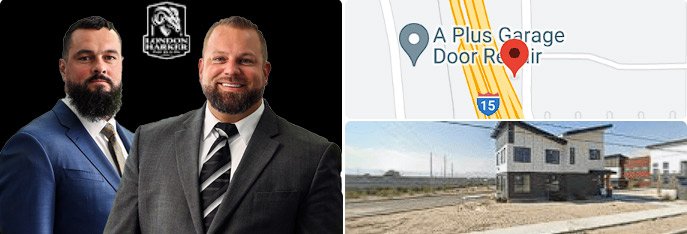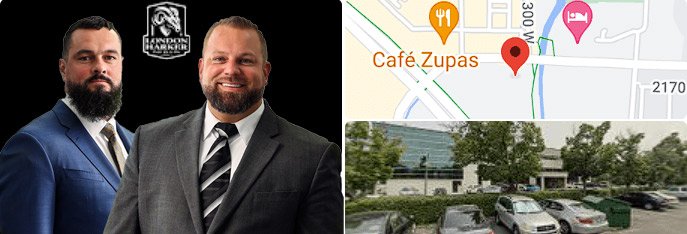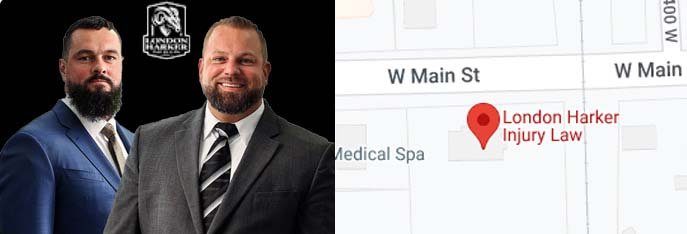Posted on Saturday, September 21st, 2024 at 9:00 am
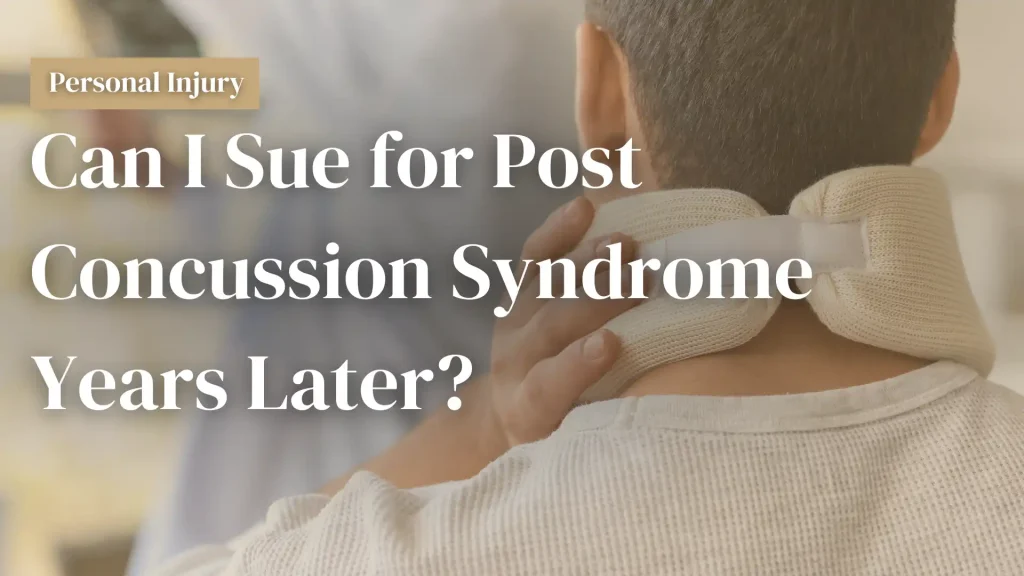
Living with post-concussion syndrome after an accident can be challenging, especially when the symptoms persist for years. You might struggle with ongoing headaches, difficulty concentrating, or other issues that won’t go away. If your concussion resulted from someone else’s negligence, you may have the right to compensation, even if several years have passed since the injury. However, it’s crucial to understand the challenges involved in seeking compensation for post-concussion syndrome years later.
The Utah personal injury attorneys at London Harker Injury Law understand the pain and frustration that come with post-concussion syndrome years after the initial injury. Our experienced and compassionate team can handle all the legal work for you and seek fair compensation for all you’ve suffered. Knowing your legal options for seeking compensation can make a big difference in how you move forward, so let’s explore this complex topic together.
What Is Post-Concussion Syndrome?
Post-concussion syndrome (PCS) is a condition that can risk developing after a person suffers a traumatic brain injury. While a concussion typically causes temporary symptoms like headaches and dizziness, PCS occurs when these symptoms persist for weeks, months, or even years after the initial injury. Doctors don’t fully understand the exact cause of PCS, but many researchers believe it results from the brain’s inability to fully recover from the concussion. Factors like the severity of the initial injury, a history of previous concussions, and individual differences in someone’s recovery can all contribute to the development of PCS.
If you’ve had a concussion, it’s important to watch for the following signs and symptoms of post-concussion syndrome years later:
- Persistent or recurring headaches that don’t go away.
- Feeling lightheaded or unsteady, especially when standing or moving.
- Difficulty remembering things or concentrating on tasks.
- Constant tiredness or lack of energy, even after resting.
- Increased frustration, anger, or mood swings.
- Difficulty tolerating bright lights or loud sounds.
- Trouble falling asleep, staying asleep, or experiencing restful sleep.
If you notice any of these symptoms after a concussion, it’s vital to seek medical advice immediately. Post-concussion syndrome can significantly impact your quality of life, and early intervention may help you manage the symptoms.
Can Post-Concussion Syndrome Come Back Years Later?
Post-concussion syndrome symptoms can indeed resurface years after the initial injury, even if you thought you had fully recovered. While not everyone who sustains a concussion will experience this delayed onset of common symptoms, issues like headaches, dizziness, and memory problems can return or even emerge for the first time long after the original accident. Factors such as stress, a second head trauma, or other health conditions can trigger these symptoms.
It’s important to understand that post-concussion syndrome isn’t always immediate and can have long-term effects on your health. If you start noticing symptoms years after sustaining a concussion, consult a doctor right away to evaluate your condition and determine your options for managing the symptoms.
What To Do If You Notice Symptoms Years After a Concussion
If you notice symptoms of post-concussion syndrome years after a traumatic brain injury, it’s essential to act as soon as possible. Even though several years may have passed, these symptoms can still significantly impact your daily life. Here’s what you should do if you experience symptoms long after a concussion:
- See a Doctor: Schedule an appointment with your healthcare provider to discuss your symptoms. They can evaluate your condition, rule out other potential causes, and recommend treatments for post-concussion syndrome.
- Keep a Symptom Journal: Track your symptoms, including when they occur and how severe they are. This information can help your doctor better understand your condition and identify any patterns that might be useful for your treatment.
- Follow Treatment Plans: If your doctor recommends treatment, such as medication, therapy, or lifestyle changes, follow their advice closely. Managing this requires consistent care.
- Consider Legal Options: If your symptoms affect your ability to work or enjoy life, and you believe they stem from a past accident that wasn’t your fault, consult a personal injury lawyer. They can help you explore your legal options for seeking compensation.
- Take Care of Your Health: Focus on your well-being by getting enough rest, eating a healthy diet, and avoiding stress. These steps can help support your recovery and reduce the severity of your symptoms.
Suing for Post-Concussion Syndrome Years After an Accident
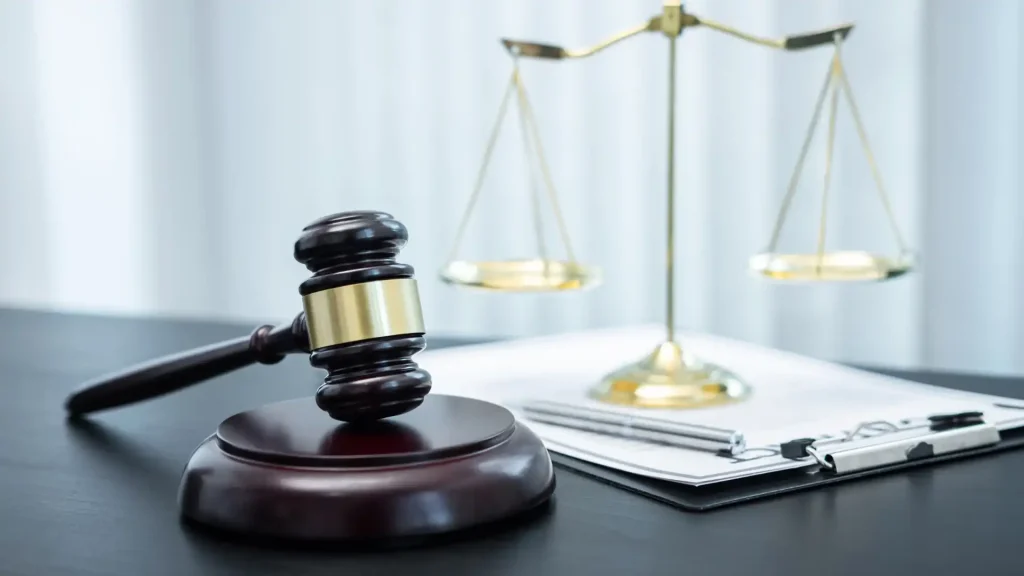
Suing for post-concussion syndrome years after an accident is possible but challenging. Here are some of the legal challenges you might face:
- Statute of Limitations: Most states have a time limit for filing a personal injury lawsuit, known as the statute of limitations. While there can be exceptions, such as discovering new symptoms later on, understanding and applying these rules can be tricky.
- Proving Causation: Linking your new symptoms to the initial concussion is one of the most difficult aspects of these cases. Over time, other factors like aging, stress, or unrelated health issues could also contribute to your symptoms. You’ll need strong medical evidence and expert testimony to establish how your ongoing symptoms stem from your original injury.
- Gathering Evidence: Over the years, key evidence from the original accident of the head injury, such as medical records or witness statements, may have been lost or become harder to obtain. This can make it difficult to build a solid case.
- Medical Expertise: Successfully suing for it often requires detailed medical evaluations and expert opinions. These experts can help establish the connection between your ongoing symptoms and the initial injury, but finding and hiring them can be expensive and time-consuming.
Deadline to File a Post-Concussion Syndrome Lawsuit
In Utah, you typically have four years from the date of an accident to file a personal injury lawsuit. While you might have additional time to file if you did not discover your injury right away, don’t count on that. If you suspect you have post-concussion syndrome years after an accident, contact an attorney immediately to protect your legal rights.
How We Can Help You Seek Compensation for Post-Concussion Syndrome
Our Utah personal injury lawyers can handle all the legal work in a personal injury claim if you have post-concussion syndrome. We’ll help you gather evidence to support your claim, handle all the necessary paperwork, and negotiate for fair compensation on your behalf. We can also represent you in court if necessary, and we have extensive trial experience we can put to work on your behalf.
Don’t wait to act if you’re struggling with post-concussion syndrome. Call our law firm now at (772) 272-7274 or complete our contact form for a free case review. Ask us anything related to your case.
